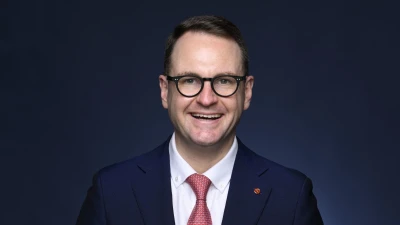Bragg slams ASIC’s ‘lack of action’ in inquiry report



Senator Andrew Bragg has criticised the regulator and Labor government for the impact of rising levies on financial advice practices.
Bragg has been chairing a Senate economics committee inquiry into ASIC since October 2022, which is now expected to be released next week on 3 July.
The inquiry was tasked with investigating the capacity and capability of ASIC to undertake proportionate investigation and enforcement action arising from reports of alleged misconduct.
Speaking at an event in February, he previously remarked: “The biggest takeaway is very clearly that the structure [of ASIC] is way too big and the culture is very sick.”
The senator has since taken to LinkedIn on 25 June to express his final criticisms in the lead-up to the report’s publication.
Bragg stated that advisers have been “ignored” by the Labor government on three key issues:
- ASIC levies
- Compensation Scheme of Last Report (CSLR) levies and the Dixon Advisory scandal
- “Unworkable drafting” on restricting members from using their super to pay advice fees
“I understand that financial advisers are very worried about the upcoming CSLR levy, which has blown out massively due to Dixon Advisory complaints. And you should be worried,” he said.
According to the Australian Financial Complaints Authority (AFCA), the alleged losses from Dixon Advisory clients are an estimated $458 million. The total number of complaints received regarding the matter is 2,510, up from 1,948 in mid-February.
Bragg continued: “One of the most troubling parts of the ASIC inquiry has been the lack of action against the individual advisers who created this problem.
“ASIC has failed to do its job and the government won’t lift a finger.”
However, the corporate regulator recently detailed to the Senate economics committee why it decided to pursue action against Dixon Advisory rather than the individual advisers involved in the wrongdoing.
Responding to Bragg on 4 June, ASIC deputy chair Sarah Court said: “ASIC investigated the provision of financial advice to a subset of Dixon clients because ASIC was concerned advisers were providing advice that was not in the best interest of those clients.
“We focused on the entity as opposed to taking action against individual advisers because Dixon held the AFSL. Dixon has an obligation to ensure that advisers under its AFSL are doing so in full compliance with corporations law.”
The court previously issued a $7.2 million penalty to Dixon, but this was unable to be paid in full as the firm went into voluntary administration in 2022.
Bragg’s LinkedIn post added: “What’s happening here is wrong. I’ve been asking the question of why proper law enforcement hasn’t happened here, and why small businesses are carrying the can.
“It is clear to me that Labor doesn’t care about the impact of these levies on small and medium financial adviser practices.”
Off the back of heightening frustration from the advice industry over the CSLR levy, a group of large licensees recently put together a petition calling on the government to fix major issues around the levy and Delivering Better Financial Outcomes legislation.
The petition is circulating to deliver a unified voice against the impact that these measures will have on the profession.
Recommended for you
Winners have been announced for this year's ifa Excellence Awards, hosted by Money Management's sister brand ifa.
Adviser exits have reported their biggest loss since June this week, according to Padua Wealth Data, kicking off what is set to be a difficult December for the industry.
Financial advisers often find themselves taking on the dual role of adviser and business owner but a managing director has suggested this leads only to subpar outcomes.
Allianz Retire+ has appointed two individuals to support financial advisers as the firm seeks to expand its presence in the wealth management space.











